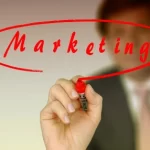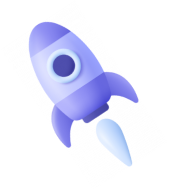- By Mohd Zeeshan
- 10 Jan, 2025
- Internet Marketing
3 Key Questions To Ask About Internet Marketing
1. What Is Internet Marketing?
At its core, marketing is about communication — sharing information about a product, service, or organization to attract customers and meet their needs. Internet marketing applies this concept to the online world, using a wide range of digital tools and strategies.
Key Components of Marketing:
- Market research to identify consumer needs.
- Developing appropriate products and pricing.
- Advertising, promotion, and distribution.
Internet Marketing Enhances Traditional Marketing With:
- Websites and blogs: Platforms for showcasing products/services.
- Email campaigns: Direct communication with potential customers.
- SEO (Search Engine Optimization): Improving visibility in search engines.
- Social media, banners, and text links: Building brand awareness.
- Affiliate programs and autoresponders: Extending reach and automating communication.
2. What Is the Cost of Internet Marketing?
The costs of internet marketing can range from almost nothing to thousands of dollars per day, depending on your strategy and goals.
Budget Considerations:
- Free or low-cost options include social media, blogging, and email marketing.
- Mid-tier expenses might include buying text links ($10/month) or investing in professional website hosting ($250/year).
- Higher-tier strategies, like paid ads, could cost $25–$50 per day or more, depending on the campaign’s scale.
How to Budget:
- Set clear short-term and long-term goals.
- Determine how much each customer is worth to you.
- Start small and scale up as you test and refine your approach.
Pro Tip: There’s no universal marketing solution. Each product and audience requires a tailored strategy. Experiment and adjust as needed.
3. What Are the Benefits of Internet Marketing?
Internet marketing offers distinct advantages over traditional marketing:
- Longevity and Residual Impact:
Websites, blogs, and online ads work for you 24/7, long after your initial effort. A single post or campaign can generate traffic and sales over time. - Targeted Reach:
- Email marketing allows for personalized messages to highly specific audiences, increasing the likelihood of conversions.
- Search engine optimization ensures your content reaches users searching for your topic or product.
- Convenience and Immediate Action:
Online customers can see your ad, visit your site, and make a purchase instantly, offering a level of convenience traditional marketing rarely achieves. - Cost-Effectiveness:
Many internet marketing tools are affordable or free, providing a great return on investment.
Getting Started With Internet Marketing
Armed with these insights, you can start building an effective internet marketing strategy:
- Research your market to understand your audience’s needs and preferences.
- Create engaging, high-quality content to attract and retain customers.
- Leverage multiple channels (e.g., email, social media, SEO) to maximize reach.
- Track performance and refine your campaigns to optimize results.
Internet marketing’s flexibility, affordability, and measurable impact make it an indispensable tool for modern businesses. With the right approach, you can effectively grow your online presence and achieve your business goals.












